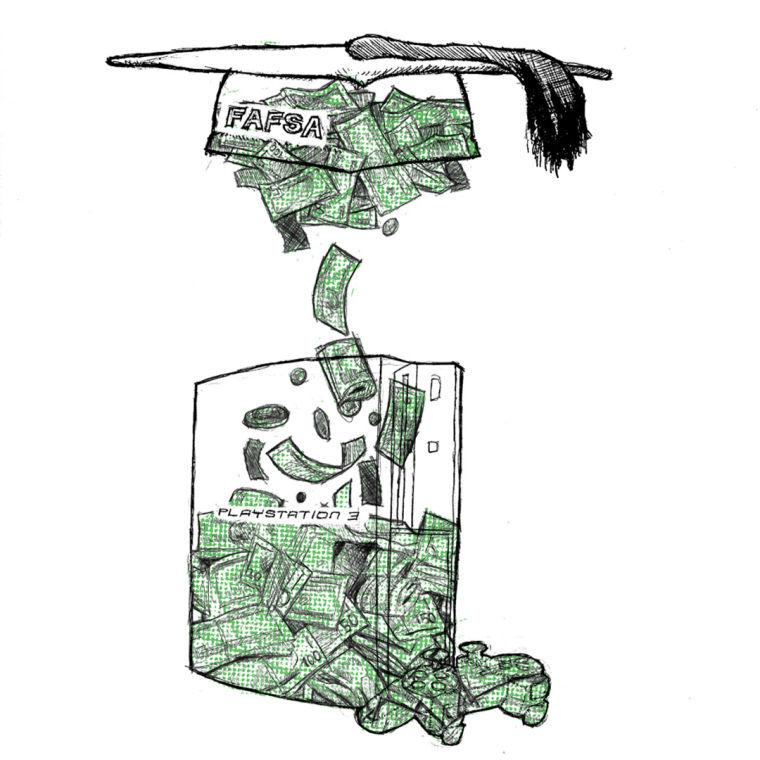Many students who plan to live off campus next year may not receive the financial aid award they are expecting to pay off their leases. Conversely, many students who violate the terms and agreements specified in their loan disclosure statements could be left with more funds than intended.
It is about that time of year when many students start making arrangements to live off campus next school year, and as they select roommates and neighborhoods, most have to consider their finances.
Students often anticipate that the cost of living will be covered entirely by their financial aid. However, many students who have been left with excess funds in the past may not necessarily be entitled to the same refunds as before. Students who are unaware of this fact may end up overstepping their financial endowments and potentially defaulting on their leases.
Morgan Middleton, assistant director for the Office of Scholarships and Financial Aid, is a seasoned veteran in troubleshooting lease complications, and as recent as Thursday, Middleton encountered a student who had to take out a short-term loan for his rent to make sure he would not be evicted. There are steps students can take to avoid such unfavorable circumstances, Middleton said.
The first is to make sure that students file their Free Applications for Federal Student Aid and all other documents required by the financial aid office as soon as they possibly can. Middleton said this ensures student awareness of how much aid they will be receiving, which can better help them assess affordable living arrangements.
Proper FAFSA filing also eliminates the possibility of unnecessary delays in dispersal of aid, which could be troublesome for students who have impending financial deadlines. Middleton also recommended that students identify to their landowners the specificities of their financial situations upfront so they can better deal with any problems that may arise.
North Carolina receives the 10th most federal financial aid in the country, with 160,000 students statewide on government loans, and some student use their money for purposes unintended by the educational and governmental institutions which award it. Interest rates on loans offered to students through the University are often significantly better than those that are offered elsewhere, Middleton said.
Many loans do not accrue interest while students are currently enrolled. The federal government endorses these benefits in an effort to guarantee that students in the United States can pursue a college career without being consumed by debt upon graduation.
Grants and loans are awarded under the stipulation that they will be used for purposes which pertain specifically to the education of the student. These include tuition, room, board and books. Nevertheless, students often use the money for things not listed in the agreement.
A student who wishes remain anonymous admitted to using the money “for just about everything,” including debt repayment, alcohol and even illegal drugs. Although using government appointed money for personal purposes is against the rules there are no immediate consequences for doing so.
Middleton said the government does not investigate if the funds are being used inappropriately.
“You could be using it all on bubblegum and they would have no idea,” Middleton said.
Nevertheless, this apparent lack of immediate repercussions to cheating the system is no adequate justification for a prodigal lifestyle, Middleton said.
It is often troublesome enough to pay back the money owed for legitimate educational expenses, and the more students choose to spend now, the more of a burden they will have to face after graduation.








